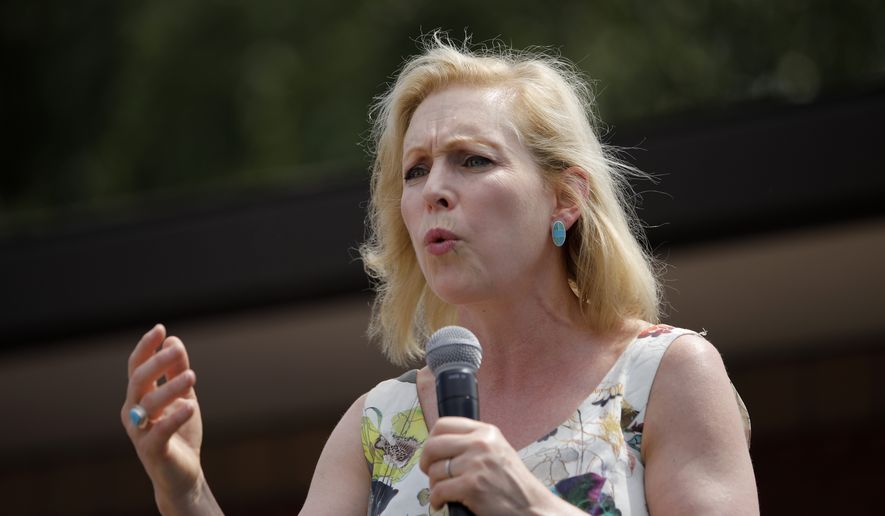Sen. Kirsten Gillibrand on Tuesday released a plan intended to boost mental health care services in the U.S., as the subject gets renewed attention in the wake of the recent shootings in Texas and Ohio.
She called for an expansion of community health centers that provide mental and behavioral health care, and said she would work to combat “implicit biases” in mental health care that disadvantage people of color and other “harmed” communities.
“If we truly believe that health care is a right and not a privilege, then access to quality mental health treatments cannot be up for debate,” the New York Democrat and 2020 presidential candidate said in a Medium post. “It’s time for mental health to be taken as seriously as physical health.”
Ms. Gillibrand vowed to expand school-based mental health care treatment, expand access to mental and behavioral health care for rural Americans, and invest further in suicide prevention efforts for young people and the LGBTQ community.
The senator also said she would work to ensure proper reimbursement rates for “non-traditional” treatment and prevention methods, like connecting people seeking treatment with a peer familiar with their background.
She also wants to address the link between mental health and the epidemic of opioid addiction in the country through efforts like a grant program for family support services, and incentives for specialized training where health providers could opt for alternative pain management treatments.
Ms. Gillibrand said she hears a lot about mental well-being on the campaign trail, but that the conversations are “almost always whispered.”
“People are too afraid of the stigma to voice them loudly,” she said. “As president, I will break down those barriers.”
Other 2020 Democratic presidential candidates, like Rep. Seth Moulton of Massachusetts and former Rep. John Delaney of Maryland, have also released policy plans that address mental health care. Rep. Tim Ryan of Ohio, who has talked up the idea of mindfulness, has called for a mental health counselor in every public school.
Ms. Gillibrand’s plan comes amid a renewed focus on mental health issues in the wake of recent mass shootings in Texas and Ohio that have left a total of more than 30 people dead.
As one possible response, President Trump in recent days has suggested opening more mental health institutions.
• David Sherfinski can be reached at dsherfinski@washingtontimes.com.




Please read our comment policy before commenting.